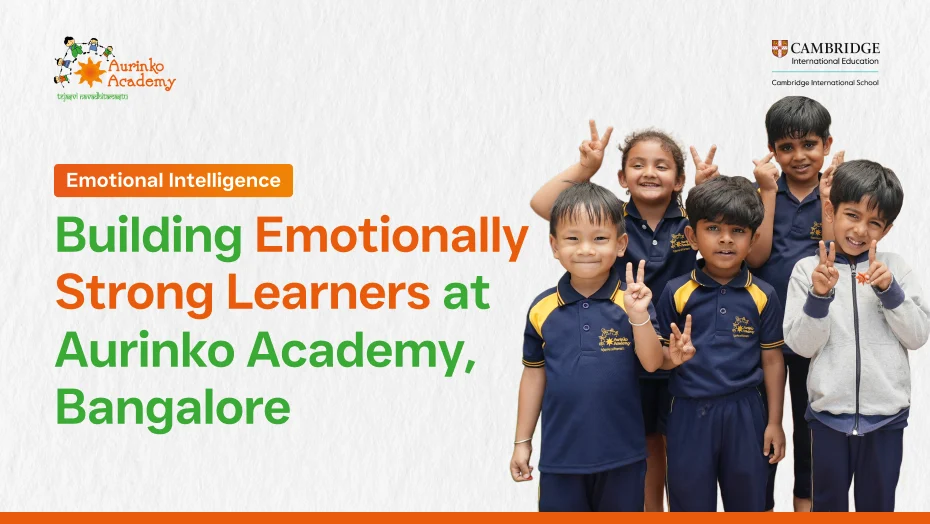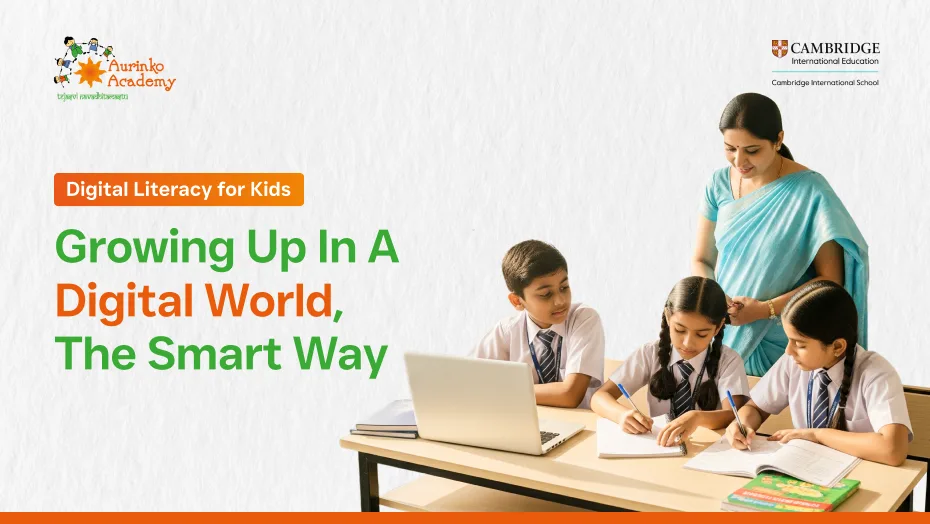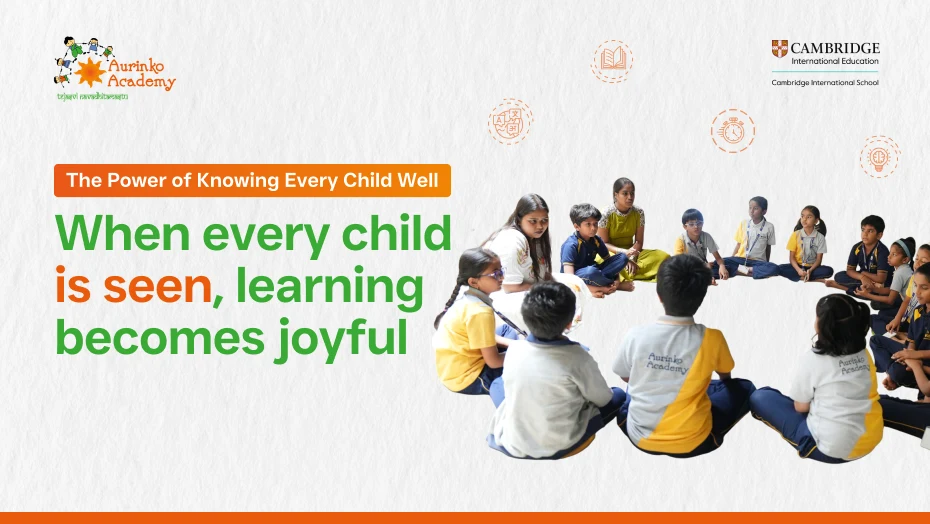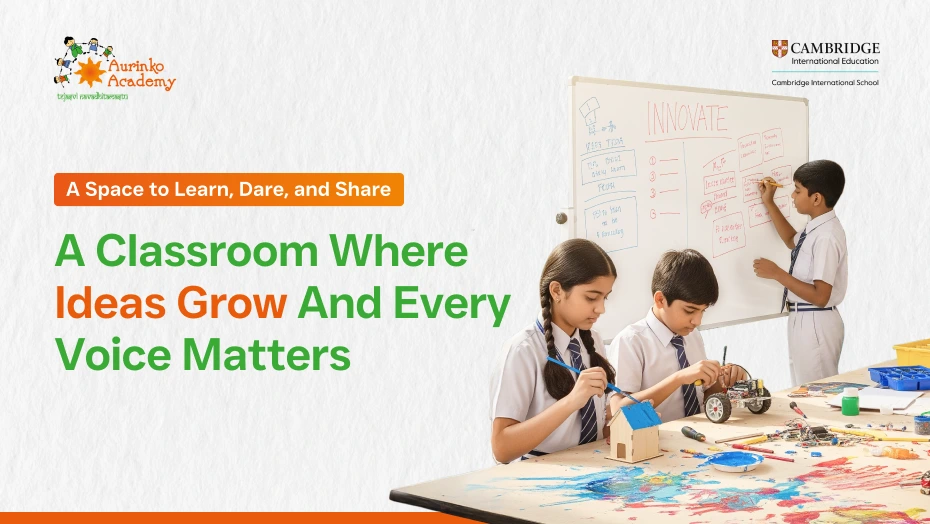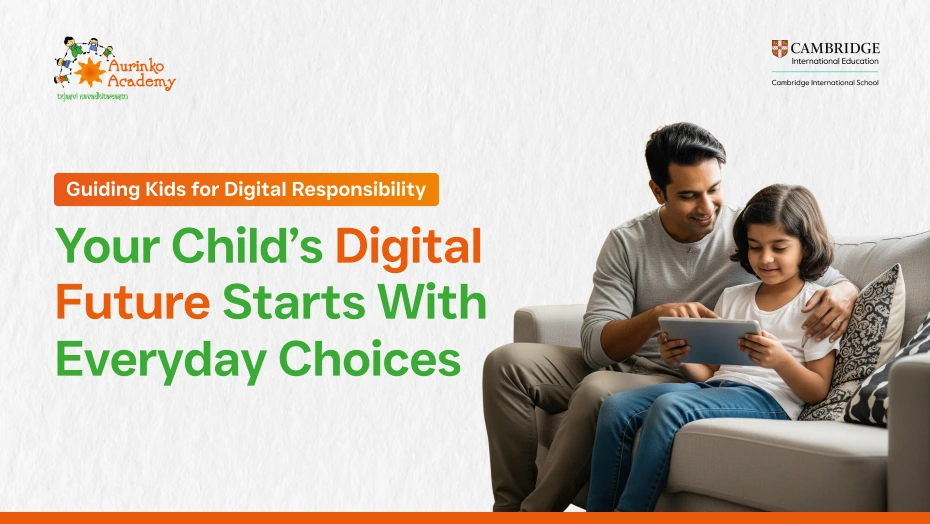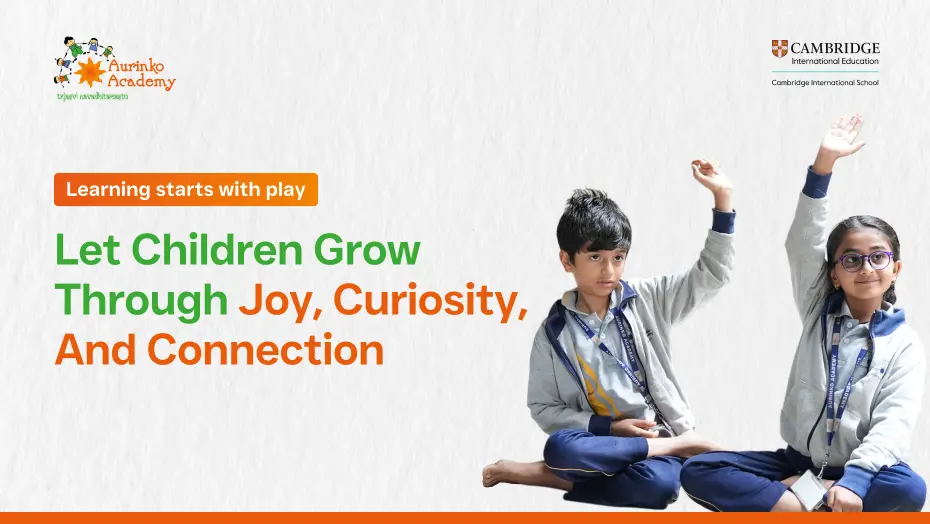We’re living in a world that’s changing faster than ever. Technology, jobs, and the way we live are evolving constantly. What your child needs to succeed tomorrow is very different from what worked in the past. It’s no longer just about learning to read, write, and solve math problems. Children today need to be adaptable, think independently, and use their creativity to face new challenges.
That’s why future-ready schools in Bangalore are focusing not only on academics, but also on nurturing the mindset and life skills that will truly prepare children for what lies ahead. As a parent, you play a huge role in this journey. Helping your child grow into a confident, capable person means paying attention to how they learn, what they value, and how they respond to the world around them.
This blog will guide parents through how to raise future-ready kids by helping them acquire necessary skills, cultivate a positive outlook, and recognize the importance of values in education. These insights will direct you toward a more fulfilling educational path, regardless of whether you’re just beginning to investigate schools or want to better support your child.
Essential Skills for Raising Future-Ready Children

Building a solid foundation with skills that go well beyond textbooks is the first step in preparing kids for the future. These essential traits help children grow into confident, capable individuals who are ready to face an ever-changing world with resilience and clarity.
- Digital Literacy
Today’s kids are raised in a digital age, but simply knowing how to operate a technology is insufficient. They must be able to safely navigate online environments, assess reliable sources, identify false information, and responsibly manage their digital imprint. Technology may become an effective instrument for learning, expression, and creativity when kids are taught to utilize it with awareness.
- Adaptability
The future will constantly demand new skills, new environments, and new ways of thinking. Children must learn to embrace change with an open mind. Whether it’s adjusting to a new subject, a new team, or a new way of learning, adaptability gives them the confidence to face uncertainty and keep moving forward.
- Critical Thinking
Children must be able to think critically and ask insightful questions in an information-rich society. Fostering critical thinking skills for students helps them to understand complicated problems, weigh opposing arguments, and draw well-considered conclusions. Better decision-making and self-directed learning are encouraged by this way of thinking.
- Soft Skills
Emotional intelligence, kindness, patience, and empathy are equally important as academic understanding. These traits support children’s ability to cooperate with others, control their emotions, and form deep connections. Schools that place a high priority on social-emotional learning in schools create the conditions for these abilities to thrive.
- Real-World Problem Solving
Teaching children to solve real problems, like organizing a classroom project or helping the community, makes learning practical and relevant. It shows them that they can make a difference, boosts their creativity, and teaches perseverance through trial and error.
- Communication
Strong verbal and non-verbal communication is essential in every area of life. Children must learn to express their ideas clearly, listen actively, and respond respectfully. These habits, when formed early, help in both academics and relationships.
- Teamwork
Children who learn to collaborate with others learn the importance of shared responsibility, cooperation, and compromise. They learn how to work well in teams through group assignments with varied classmates, which is crucial for both school and future employment.
- Active Citizenship
Youngsters must be conscious of the world outside of their immediate environment. They develop a feeling of duty and become considerate, caring citizens when they are encouraged to take part in service projects, learn about global issues, and participate in social initiatives.
- Resilience Through Normalizing Failure
Children must understand that failure isn’t something to fear, and it’s a part of growing. When we help them reflect on their mistakes, try again, and stay curious despite setbacks, they develop resilience. This inner strength helps them face challenges with courage and keep going even when things get tough.
The Importance of Values-Based Education

In today’s fast-paced world, children need more than academic success. They need strong values to guide them. That’s why values-based education in Bangalore is gaining importance in shaping future-ready learners.
When children are taught values like honesty, empathy, courage, and respect, they grow into responsible individuals who make thoughtful choices. These lessons help them understand right from wrong, treat others with kindness, and face life’s challenges with confidence.
Schools that follow a values-based model create a culture of safety, mutual respect, and care. Teachers don’t just teach values but live them every day through their actions and words. Children learn best when they feel understood, appreciated, and supported.
Through daily routines, storytelling, real-life conversations, and group activities, children begin to internalize values that stay with them for life. A strong foundation in values makes it easier to build life skills, develop self-awareness, and become compassionate global citizens.
How Teachers Can Foster Future Skills and Values in Schools
Teachers always have a significant impact on the mind and soul of the children. They assist parents with the development of a strong value system in children and future-ready skills by engaging them in making informed choices on a daily basis.
This can be achieved by teachers in the following simple yet very effective ways:
- Provide worthwhile exercises that relate education to everyday living.
- Use experiential learning methods like role play, hands-on projects, and storytelling
- Be a positive role model. Children learn more from what they see than what they hear
- Build a school culture where every child feels safe, valued, and included
- Promote discipline, balance, and healthy habits through routine and consistency
- Embrace inclusive classrooms that celebrate diversity of backgrounds, needs and views
- Educate on the need to cut down the screen time and focus on productive use of time
- Encourage collaboration, empathy and self-analysis in day-to-day learning
All these actions develop a learning environment in the classroom where values and life skills are taught side by side.
Conclusion
One of the most fulfilling aspects of parenting is seeing your child develop into a self-assured, kind, and competent adult. Even while nobody can foresee the future, we do know that preparing our kids for it requires more than just concentrating on grades or exams.
It means choosing an environment that nurtures not just the mind, but the heart. One that blends critical thinking skills for students, modern technology, creativity, life skills, and the importance of values in education.
At Aurinko Academy, we believe in shaping not just future students—but future citizens of the world. As one of the leading future-ready schools in Bangalore, we focus on building strong values, deep learning, and curiosity that lasts a lifetime.Ready to give your child the foundation they need to thrive?

